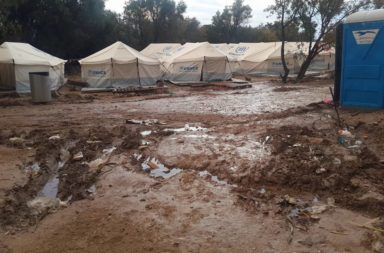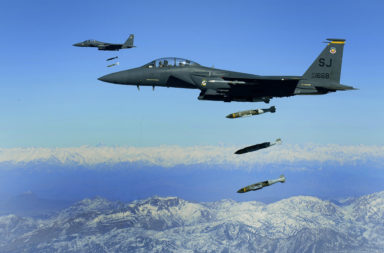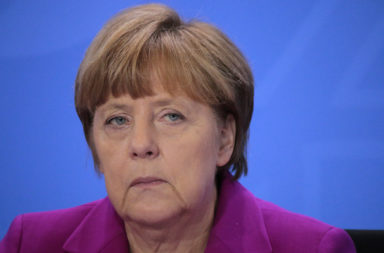What a shock for Germany when a new estimation of the long-term costs of one million refugees was presented by the Heinrich-Böll-Foundation, a foundation with close ties to the liberal and pro-refugee Green party.
Professor Holger Bonino from the famous Mannheimer Zentrum für Europäische Wirtschaftsforschung (ZEW) presented his analysis of the full costs of an estimated one million refugees who came last year mainly from Syria and Arab countries.
His method is called ‘generation-balance’. He counts all costs minus state-income by taxes. He used three basic models: best case, base case and worst case.
In the worst case the now educated migrants get only minor jobs. This would add to € 400 billion costs for Germany in around 30 years.
In the best case all have a good education and all get a job. If this is the case, the cost will be neutral, and the state may even make money from this endeavor.
In the base case, between best and worse, Germany needs to pay between € 150 billion to € 200 billion for one million refugees.
Indeed last year there were more than one million alone and another 500,000 unregistered refugees in Germany, so 1.6 million in 2015. The government estimates 500,000 more to come this year and another 250,000 entering Germany in 2017. So Germany will have more than two million refugees in three years.
The real numbers will be not two but two million refugees. In this realistic base case Germany would have to spent between € 300 billion to € 400 billion in the next 30 years.
This is a real burden for the rich country due to the negative demographic trends. More and more Germans will retire from the baby-boom era and that means fewer workers to support more pensioners. Less taxes too and more burdens for the elder generation and now many more refugees.
Until now Angela Merkel and her the Federal government have remained silent. Better do not talk about it.
A chancellor out of touch, wrote former U.S. Ambassador JD Bindenagel in GLOBALO recently.
These severe burdens are like gasoline for the anti-migration party AfD, which gained already much support in the last regional elections. In September 2017 there are federal elections and for sure these costs will be debated.
The low class fears to loose and vote right-wing- all over Europe.
The estimates show as well an end of Angela Merkel’s optimistic “we can do it”-policy, which was not based on solid facts and planing, but good will only.
The only way to avoid this clash and rise of right-wing populism in Germany (and all over Europe) is a bundle of concrete actions.
This includes for Germany:
- a fresh immigration law using best practices from Canada or Australia
- a better EU action plan, and border control and support in home countries and refugee camps
- limiting the refugee flow to around 250,000 a year which can be absorbed- too many are too many.
- send people back who have no right for asylum (estimated 60 percent)
- best train the refugees and integrate them into the labor force as soon as possible
- treat all emigrants at its best with friendliness, tolerance and respect, including peaceful Islam
- nominate Ministers of Tolerance to give this important issue power in the administration and permanent attention (like done in the UAE this year)
- demand a quick integration as well including learning the local language, education for all, respect for the customs of the host nation.
A better EU policy is needed as Member of the European Parliament Tunne Kelam told GLOBALO.
Safe-Hope-Zones in Syria and Libya must be established, so the people can stay and live security in dignity at home.
Until now Merkel and other EU leaders mainly talk, but do not plan, finance and act as needed in a bundle of actions on the ground.
GLOBALO has reported in January 2016 why Angela Merkel acted as she did to let many refugees in.
It is needed to help the people where they are: in Syria or in Africa with a more effective action policy and some € 100 billions invested in the small business, farming and fair trade and good governments.
Several millions more seek a better future in Europe, many in Libya. The world counts more than 40 million refugees. Not all can come to Europe for a better life. Needed is a better-life-policy at home.




